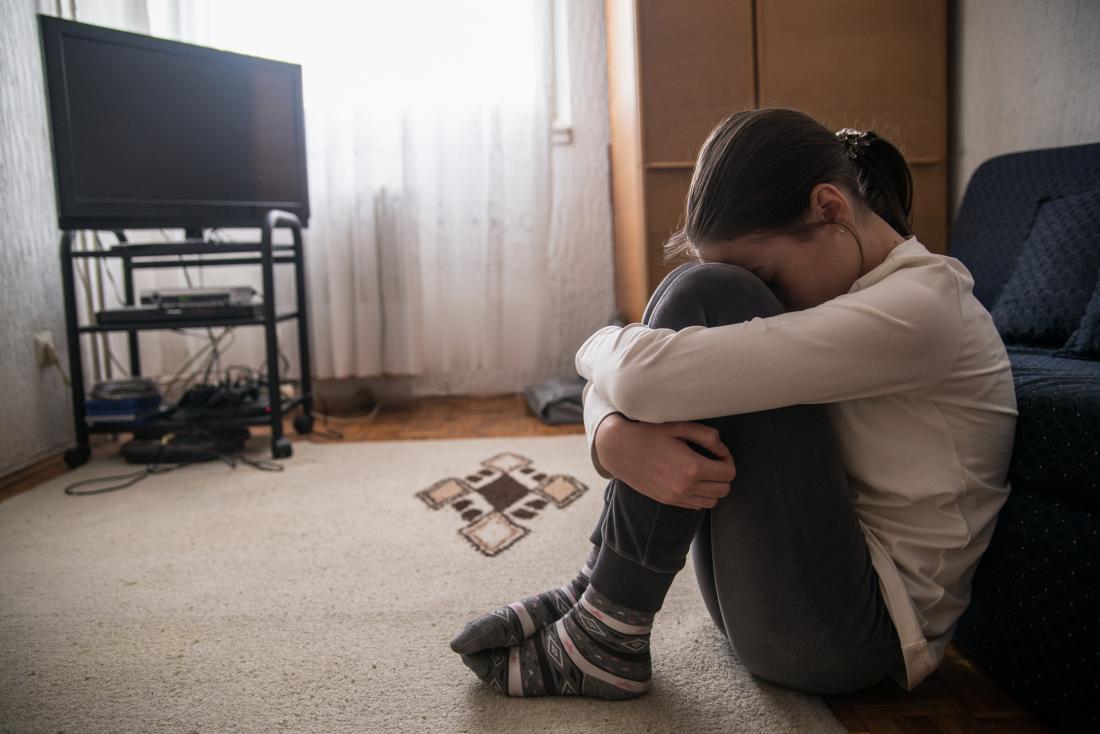
Depression has been classified as a mood disorder. It can also be described as feelings of sadness, loss, or anger that interfere with a person’s everyday activities, resulting in lost time and lower productivity. Depression can also influence relationships and some chronic health conditions. The mood disorder is experienced by people in different ways.
Now, it’s important to realize that feeling down at times is normal because sad and upsetting events happen to everyone on a daily or weekly basis, but, if you’re feeling down or hopeless on a regular basis and all you can think about is ending your life, then you could be dealing with depression. The earlier it is detected and worked on, the better for your psychological well-being.
Symptoms
These symptoms can be experienced differently in men, women and children.
Men may experience symptoms related to their:
- Mood, such as anger, aggressiveness, irritability, anxiousness, and restlessness.
- Emotional well-being, such as feeling empty, sad, and hopeless.
- Behaviour, such as loss of interest, you no longer finding pleasure in favourite activities, you get tired easily, thoughts of suicide, drinking excessively, use of drugs, and engaging in high-risk activities.
- Sexual interest, such as reduced sexual desire, and lack of sexual performance.
- Cognitive abilities, such as inability to concentrate, difficulty completing tasks, and delayed responses during conversations.
- Sleep patterns, such as insomnia, restless sleep, excessive sleepiness, and not sleeping through the night.
- Physical well-being, such as fatigue, pains, headache, and digestive problems.
Women may experience symptoms related to their:
- Mood, such as irritability.
- Emotional well-being, such as feeling sad or empty, anxious, or hopeless
- Behaviour, such as loss of interest in activities, withdrawing from social engagements, and thoughts of suicide.
- Cognitive abilities, such as thinking or talking more slowly.
- Sleep patterns, such as difficulty sleeping through the night, waking early, and sleeping too much.
- Physical well-being, such as decreased energy, greater fatigue, changes in appetite, weight changes, aches, pain, headaches, and increased cramps.
Children may experience symptoms related to their:
- Mood, such as irritability, anger, mood swings, and crying.
- Emotional well-being, such as feelings of incompetence (e.g. “I can’t do anything right”) or despair, crying, and intense sadness.
- Behaviour, such as getting into trouble at school or refusing to go to school, avoiding friends or siblings, thoughts of death or suicide.
- Cognitive abilities, such as difficulty in concentration, decline in school performance, changes in grades, and more.
- Sleep patterns, such as finding it difficult to sleep, or sleeping too much.
- Physical well-being, such as loss of energy, digestive problems, changes in appetite, and weight loss or gain.
Causes of Depression
There are several causes of depression. They can range from biological to circumstantial. Common causes of depression include:
- Family history: You’re at a higher risk of developing depression if you have a family history of depression or another mood disorder.
- Early childhood trauma: Some events from your childhood days affect the way your body reacts to fear and stressful situations.
- Brain structure: There’s a greater risk for depression if the frontal lobe of your brain is less active. However, scientists don’t know if this happens before or after the onset of depressive symptoms.
- Medical conditions: Certain conditions may put you at higher risk, such as chronic illness, insomnia, chronic pain, or attention-deficit hyperactivity disorder (ADHD).
- Drug use: A history of drug or alcohol misuse can affect your brain. About 21 percent of people who have a substance use problem also experience depression.
In addition to these causes, other risk factors for depression include:
- Low self-esteem or being self-critical.
- Personal history of mental illness.
- Certain medications.
- Stressful events, such as loss of a loved one, economic problems, or a divorce.
However, in many cases, healthcare providers are unable to determine what’s causing depression.
Quick tips on dealing with depression
Reach out and stay connected
When you’re depressed, the tendency is to withdraw and isolate that you disconnect from even close family members and friends. However, getting support plays an essential role in overcoming depression. On your own, it can be difficult to maintain a healthy perspective and sustain the effort required to beat depression.
Do things that make you feel good
The period when your emotions are down and weak is the time for you to get involved in those things you love best, could be sports, music or bike riding, singing and dancing.
Get moving
Go on the move, do anything to keep you out of bed and get your brain active. Go for exercise, take classes, get a daily dose of sunlight.
Challenge negative thinking
Depression is mostly birthed by negative thoughts in the mind, especially when it’s caused by lack of self-esteem. So, to deal with it, say daily words of affirmation to yourself, think yourself to be a doer and an achiever.
Get professional help
If you’ve taken self-help steps and made positive lifestyle changes and still find your depression getting worse, seek professional help.
Sources
Helpguide
Healthline
Featured Image Source: Medical News Today

 Wizkid Nearly Quit Music — Jada P Reveals The Untold Story Behind His Darkest Hour
Wizkid Nearly Quit Music — Jada P Reveals The Untold Story Behind His Darkest Hour  Jason Derulo Says He Will Never Be Alone With A Woman In A Room
Jason Derulo Says He Will Never Be Alone With A Woman In A Room  Salah’s Bombshell: Liverpool Legend Says He’s Been “Thrown Under the Bus”
Salah’s Bombshell: Liverpool Legend Says He’s Been “Thrown Under the Bus”  Reality Star Tacha Says People Should Be Allowed To Die If They Want
Reality Star Tacha Says People Should Be Allowed To Die If They Want  Why Very Dark Man And Mr. Jollof Fought On A Plane
Why Very Dark Man And Mr. Jollof Fought On A Plane  Regina Daniels Mocks Ned Nwoko After Brother’s Release From Detention
Regina Daniels Mocks Ned Nwoko After Brother’s Release From Detention  The Top 5 Contenders For AFCON 2025: Africa’s Giants Ready For Battle
The Top 5 Contenders For AFCON 2025: Africa’s Giants Ready For Battle  American Rapper Wiz Khalifa Faces Imprisonment In Romania For Smoking Marijuana
American Rapper Wiz Khalifa Faces Imprisonment In Romania For Smoking Marijuana  Putin Threatens To Expand Military Operations In Ukraine If Negotiations Collapse
Putin Threatens To Expand Military Operations In Ukraine If Negotiations Collapse  What Trump’s Travel Ban Means For Nigerians
What Trump’s Travel Ban Means For Nigerians
1 thought on “Dealing With Depression”